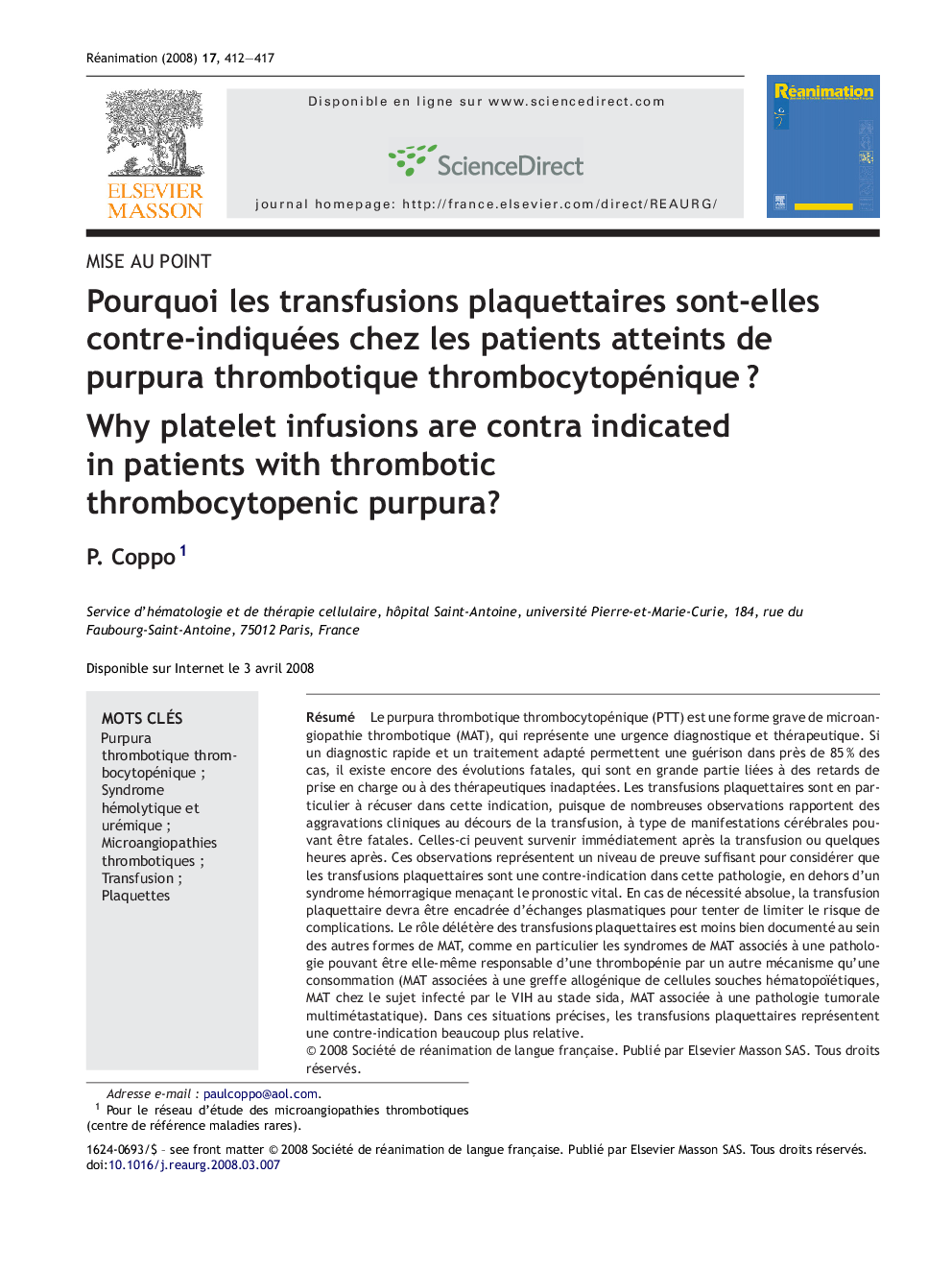| Article ID | Journal | Published Year | Pages | File Type |
|---|---|---|---|---|
| 2613340 | Réanimation | 2008 | 6 Pages |
Abstract
Thrombotic thrombocytopenic purpura (TTP) is a severe form of thrombotic microangiopathy (TMA), which requires a rapid diagnosis and a specific treatment. Currently, patients treated with an adapted treatment have a favorable outcome in 85% of cases. However, some patients still experience a fatal outcome, which is mainly due to a delay in diagnosis and management or to inadapted therapies. Particularly, platelet infusions were associated with a worsening of TTP in a large number of patients, who developed sometimes fatal cerebral manifestations, immediately after platelet infusion or some hours later. At autopsy, very large amounts of thrombi were found in yet uninvolved organs. Consistent with these observations, a worsening of TTP was also reported in patients who experienced a very rapid platelet count recovery under treatment. These observations represent a sufficient body of evidence to consider that barring a life-threatening bleeding, platelet infusions should be contra-indicated in this disease. In patients in whom a platelet infusion is absolutely required, daily plasma exchange should be associated, in order to prevent complications. The deleterious consequences of platelet infusions are less clearly documented in patients with a TMA with another condition (allogeneic hematopoietic stem-cell transplantation-associated TMA, late stage HIV-associated TMA, TMA in patients with a disseminated cancer), which may cause thrombocytopenia by other mechanisms than consumption. In those patients who may respond poorly to plasma exchanges and with a persistent severe thrombocytopenia, platelet infusions may be considered in some cases to avoid severe bleeding.
Related Topics
Health Sciences
Medicine and Dentistry
Emergency Medicine
Authors
P. Coppo,
